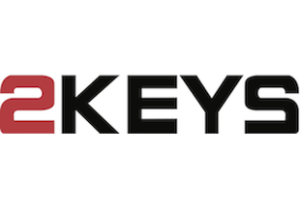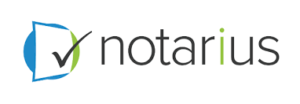 In this edition of the DIACC member Spotlight, we chat with experts from Applied Recognition. Learn about their work, why they believe trustworthy digital identification is critical for existing and emerging markets, and why they joined the DIACC league of experts.
In this edition of the DIACC member Spotlight, we chat with experts from Applied Recognition. Learn about their work, why they believe trustworthy digital identification is critical for existing and emerging markets, and why they joined the DIACC league of experts.
1. What is the mission and vision of Applied Recognition?
Applied Recognition’s vision is to create the most accurate and most easily deployed biometric face recognition technology to help protect people, their credentials and their transactions.
Our mission is to partner with organizations which understand the importance of embedding face recognition into their processes to improve both security and users’ experience while respecting privacy.
2. Why is trustworthy digital identity critical for existing and emerging markets?
Simply put, because of the eternal temptations to lie or to steal to which some small percentage of any population will always succumb. Whether to improve existing processes like the validation of an ID at a liquor store or to prevent fraud in an emerging domain like fintech, digital identity is increasingly a prerequisite.
3. How will digital identity transform the Canadian and global economy? How does Applied Recognition address challenges associated with this transformation?
Today, the economy – and society as whole – suffers enormous drag due to problems that have their root in identity considerations. Fraud is just the tip of the iceberg. There’s the cost of fraud prevention, enforcement costs, the purchases that don’t happen because the risk of extending a credit is too great, the loss of social capital when tax-funded services are illegally used, the loss of well-being when opioids end up in the wrong hands. Many people have even given up on using dating sites due to identity misrepresentation.
Applied Recognition makes it easy for organizations to integrate face recognition-powered identity verification into how they operate, in all relevant processes. When the friction caused by lack of confidence in identity is removed, organizations and indeed, society as a whole, can begin to move again at the “speed of trust”.
4. What role does Canada have to play as a leader in the space?
Canada might well be at the sweet spot of “big enough, but not too big” where there’s sufficient pressure to push organizations to deploy new technology yet scope for the kind of cross-industry coordination and private/public alignment that’s going to be required to achieve full ignition.
5. What else should we know about Applied Recognition?
We’ve been at this for longer than just about anyone else – 13 years now – and orient ourselves to serve those organizations that understand the long-term implications of digital identity going biometric. We’ve architected our technology to run entirely on mobile devices as well as in the cloud. Now, that might seem to be a narrow technical observation until considering the importance of preserving flexibility in the face of still emerging user expectations with regards to privacy, speed, security, etc. and the lack of settled law, regulations, and customs. Whether an organization chooses to work with us directly or to spec – in our technology when building an RFP, Applied Recognition is the future-proof choice in a domain where any kind of false start is likely to be very costly.
Learn more about how we make it easy to deploy biometric digital identity at
 tion of the DIACC member Spotlight, we chat with DIACC member experts from Digidentity. Learn about their work, why they strongly believe international industry standardizations are critical, and why they joined the DIACC.
tion of the DIACC member Spotlight, we chat with DIACC member experts from Digidentity. Learn about their work, why they strongly believe international industry standardizations are critical, and why they joined the DIACC.

